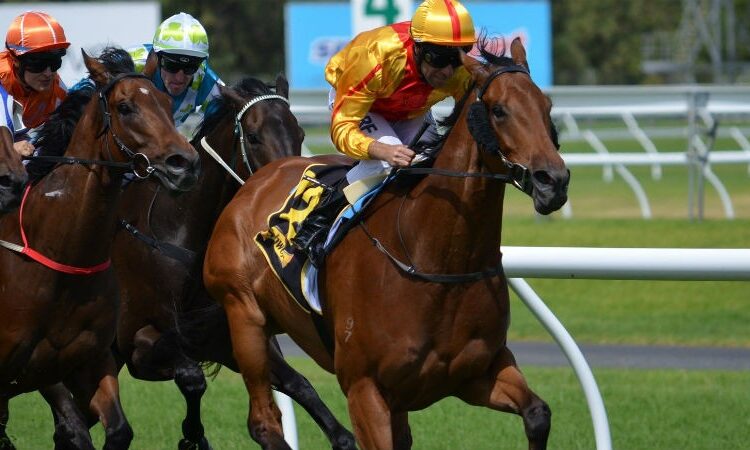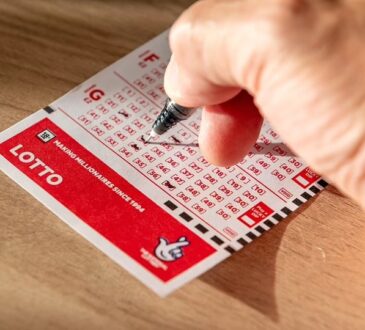Your Guide to Horse Racing Betting: From Odds to Wins

Horse racing is often referred to as the “Sport of Kings,” and for good reason. The thrill of the races, the elegance of the horses, and the potential for big wins make it one of the most exciting sports to bet on. Whether you’re a seasoned punter or a newcomer to the world of horse racing, understanding the intricacies of betting is crucial to making informed decisions and maximizing your chances of success. This guide will walk you through everything you need to know about horse racing betting, from understanding odds to placing winning bets.
Understanding Horse Racing Odds
The first step in successful horse racing betting is understanding how odds work. Odds represent the probability of a particular outcome occurring, such as a horse winning a race. They also indicate how much money you stand to win if your bet is successful.
- Fractional Odds:
- Commonly used in the UK and Ireland, fractional odds are presented as two numbers separated by a slash, such as 5/1 or 7/2. The first number represents the potential profit you can make, while the second number is the amount you need to stake. For example, with 5/1 odds, a £1 bet would yield a £5 profit, plus your original stake.
- Decimal Odds:
- Popular in Europe and Australia, decimal odds are displayed as a single number, like 6.00 or 3.50. This figure shows the total return for every £1 staked, including your original stake. For instance, if you bet £1 at odds of 6.00, you’d receive £6 in total (a £5 profit plus your £1 stake).
- Moneyline Odds:
- Mostly used in the US, moneyline odds can be either positive or negative. Positive moneyline odds indicate how much profit you’d make on a £100 bet, while negative odds show how much you’d need to bet to win £100.
Types of Horse Racing Bets
Once you understand the odds, the next step is to familiarize yourself with the different types of bets available in horse racing. Here are some of the most common ones:
- Win Bet:
- The most straightforward bet, where you pick a horse to finish first. If your horse wins, you win.
- Place Bet:
- A safer option than a win bet, a place bet pays out if your horse finishes in one of the top positions—usually first or second, depending on the number of runners.
- Each-Way Bet:
- An each-way bet is essentially two bets in one: a win bet and a place bet. If your horse wins, you collect on both the win and place parts of the bet. If it places but doesn’t win, you still receive a payout from the place portion.
- Exacta (Forecast):
- This bet involves predicting the first two horses to finish in the correct order. It’s more challenging than a simple win bet but offers higher payouts.
- Trifecta (Tricast):
- Similar to an Exacta, but you must predict the first three horses to finish in the correct order. The increased difficulty comes with the potential for a significant payout.
- Superfecta:
- This bet requires you to pick the first four horses to finish in the exact order. While it’s a tough bet to win, the rewards can be substantial.
- Accumulator:
- An accumulator combines multiple bets across different races into one. All selections must win for the bet to pay out, making it a high-risk, high-reward option.
Analyzing Form and Performance
To make successful bets, it’s essential to analyze the form and performance of the horses, jockeys, and trainers. Here’s what to consider:
- Horse’s Form:
- A horse’s recent performance is often a good indicator of how it might perform in the upcoming race. Look at its last few races—how often has it placed or won? Has it been consistent or shown improvement?
- Jockey and Trainer Success:
- The experience and skill of the jockey and trainer can significantly impact a horse’s performance. Successful jockey-trainer combinations are worth noting, especially if they have a history of winning together.
- Course and Distance:
- Some horses perform better on certain tracks or over specific distances. Review how the horse has performed at the racecourse and distance in question. Horses that have won at the course or distance before are often good bets.
- Track Conditions (Going):
- The condition of the racetrack, referred to as the “going,” can affect a horse’s performance. Some horses thrive on firm ground, while others prefer softer conditions. Always check the going before placing your bets and consider how the horses have performed under similar conditions in the past.
Strategic Betting: Maximizing Your Wins
Betting on horse racing isn’t just about picking winners; it’s about betting smart. Here are some strategies to help you maximize your wins:
- Shop for the Best Odds:
- Different bookmakers offer different odds on the same race. Shopping around can help you find the best value for your bet, increasing your potential return.
- Use Multiple Bet Types:
- Diversify your bets across different types, such as combining win bets with each-way or exacta bets. This approach reduces risk and increases your chances of winning something, even if your primary bet doesn’t win.
- Follow Expert Tips and Analysis:
- There are plenty of resources available that offer expert tips and analysis for upcoming races. While it’s important to do your own research, listening to experienced tipsters can provide valuable insights.
- Bet Responsibly:
- Set a budget for your betting activities and stick to it. Betting should be fun and not put you under financial strain. Never bet more than you can afford to lose, and avoid chasing losses with larger bets.
- Consider In-Play Betting:
- In-play or live betting allows you to place bets during the race. This can be particularly useful if you notice a horse gaining momentum or a favorite struggling. However, be cautious, as the fast-paced nature of live betting can also lead to impulsive decisions.
Understanding Betting Markets
Horse racing betting markets can be complex, but understanding them can help you identify value bets:
- Betting Exchange:
- A betting exchange allows you to bet against other punters rather than the bookmaker. This often leads to better odds, as the exchange takes a commission rather than setting the odds themselves. You can also lay bets, betting on a horse to lose rather than win.
- Fixed-Odds Betting:
- Fixed-odds betting involves placing a bet at specific odds offered by a bookmaker. These odds do not change once your bet is placed, regardless of market movements.
- Tote Betting:
- In tote betting, all bets are pooled together, and the payout is determined by the total amount wagered and the number of winning bets. This system is commonly used in the UK, particularly for big events like the Grand National.
Big Races to Watch in 2025
As you hone your betting skills, keep an eye on the major races of the 2025 season, where some of the best horses, jockeys, and trainers will compete:
- Cheltenham Festival:A highlight of the National Hunt racing calendar, with top-class jump racing over four days.
- The Grand National:Perhaps the most famous horse race in the world, known for its unpredictability and large field of runners.
- Royal Ascot:A five-day festival of flat racing, attracting the best horses from around the globe.
- The Derby at Epsom:The ultimate test for three-year-old thoroughbreds, combining speed, stamina, and strategy.
Conclusion
Horse racing betting is a thrilling way to engage with one of the most exciting sports in the world. By understanding the odds, familiarizing yourself with different bet types, and using strategic betting techniques, you can enhance your chances of success. Remember to always bet responsibly, enjoy the process, and may your picks lead you to victory. Whether you’re aiming for a big win or just looking to enjoy the sport, these tips will help you navigate the world of horse racing betting from odds to wins.








